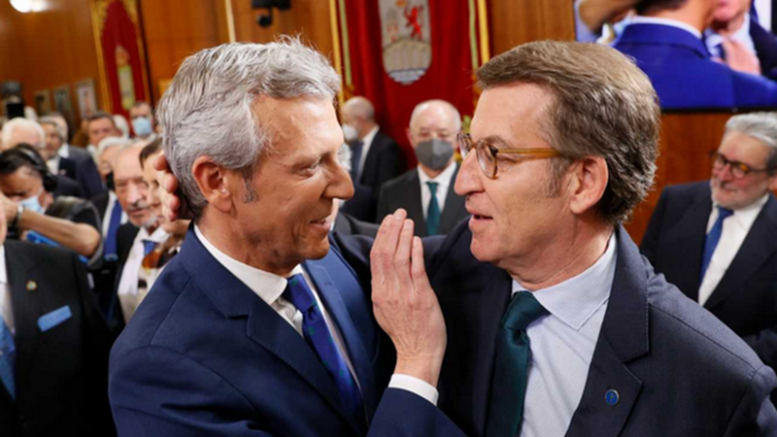Fernando González Urbaneja| There is no electoral truce. On 18 February the PP will put its majority in Galicia at stake in elections that are being brought forward by five months. The last elections were held in July 2020, coinciding with the Basque elections and following the European elections a year earlier, which produced an unprecedented multi-party result with nine groups winning seats and the PSOE’s 33% majority (thirteen points more than the Popular Party, which was at a very low ebb).
On that occasion, Núñez Feijóo assumed the leadership of Galicia, placing the PP’s acronym in second place and boosting its image. It was a game of heads or tails, absolute majority or opposition that brought with it a probable retirement from politics. In the end, Feijóo repeated his absolute majority with 48% of the votes and an yield of 41 seats, three more than required for an absolute majority. Vox and the confluence of IU, Podemos, Mareas, Anova got nothing. Galician socialism failed to reach 20% and 14 MPs, and the BNG consolidated its position as the second force with 24% of the vote and 19 seats. Last July’s general elections revalidated the triumph of the Galician PP (43.5%), with the Socialists as the second force (30%) and the other left-wing parties BNG and Sumar obtaining around 10% each.
Once again, the Galicians have the chance to revalidate the strength of the PP with a new absolute majority and, at the same time, to measure the weight of the rest of the left, apart from socialism, which will run with three or four lists. If Feijóo is at stake in Galicia (even if he is not a candidate), Yolanda Díaz is also putting herself to the test in her region of birth, where she has never been successful.
The PP could have waited until the deadline expired in July and made the elections coincide with the European elections, but it has preferred to open a new electoral campaign that promises to be a dogfight, as it is a test for all the consolidated or yet to be consolidated parties. Revalidating the PP’s majority with a new candidate and Feijóo in the background is what he hopes to consolidate his leadership. Sánchez has little at stake in this challenge. The opposite of Yolanda Díaz, who intends to corner the other left-wing formulas.
It remains to be seen what the Basque government and its outgoing president, who has to decide on his electoral appointment before July, will do. The Catalan elections are also pending, with a very weak ERC government and the expectation of a PSC that aspires to the Generalitat, allied with some of the pro-independence forces (or not).
In short, 2024 is a very open year in terms of electoral prospects that will not be decisive, but very indicative of the new map of political forces after the “amnesty operation” undertaken by Pedro Sánchez to neutralise Catalan independence and consolidate his leadership position.





